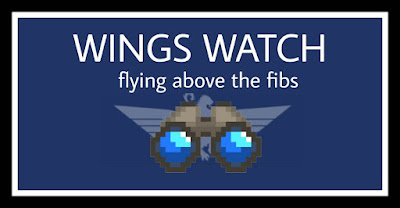When the Tories completed their "taking stock" exercise in 1993, presenting a ragtag collection of cosmetic procedural changes (mostly involving the Scottish Grand Committee) as an answer to the Scottish people's desire for political devolution, Canon Kenyon Wright memorably replied as if he was marking an exam paper: "Interesting, but appears to have misunderstood the question." Those words popped into my head today when I saw the outcome of the SNP's NEC meeting. The SNP leadership would probably argue that they've listened to the concerns of those who think using a Westminster election as a de facto referendum would be a mistake, on the grounds that it would exclude 16 and 17 year olds, EU citizens, plus anyone who falls foul of the outrageous new photo ID rules. So an alternative to the main plan has now been proposed, which would see a Holyrood election used as the de facto referendum instead - but crucially, it would wait until the next scheduled Holyrood election in 2026. That's no use at all to the people who were actually arguing for a Holyrood de facto referendum, because they almost uniformly expected it to be a snap election held this year. There was never any intention that it should be used as an excuse for yet more delay.
Although I firmly believe that it is strategically wiser to use a Holyrood election, if I was confronted with a straight choice between the two options the SNP have set out today, I would undoubtedly choose the Westminster 2024 option, in spite of all the disadvantages of a narrower franchise. By far the most important consideration is to ensure a timely vote. If we wait until 2026, it means the people of Scotland will not be given a choice on independence until a full decade after they learned they were to be dragged out of the EU against their will. None of us should consider that remotely acceptable.
However, there are two big plus points here. Firstly, the NEC paper embraces the possibility of amendments at the special conference - so, in theory, delegates may yet be able to bring the option of a snap Holyrood election to the table, although given the control-freakery that the SNP leadership have become known for, I'll believe that when I see it. And secondly, in spite of the way some people are reacting tonight, there has at least been no climbdown from the principle of a de facto referendum - both of the main options would see a de facto referendum take place, albeit in one case it would take place far too late.
By far the weakest part of the paper is the nonsense built into the alternative option about the 2024 Westminster election being used to obtain yet another mandate for a referendum (that would be the fifth!). Only if that mandate is ignored would the 2026 Holyrood election be used as a de facto plebiscite. That creates a completely unnecessary additional hurdle. There's no reason why the 2026 election can't be used regardless of the outcome of the 2024 election. 2026 will be a standalone election and its result will speak just as powerfully no matter what happened in 2024. Why muddy the waters if the SNP win a majority of Westminster seats in 2024 but not a majority of the popular vote?
And there's also a needless sentence in the paper about how votes for other pro-independence parties will be counted towards the 50% + 1 target in a plebiscite election, but only if the SNP have entered into a pre-arrangement with those parties. That caveat is obviously only there to exclude Alba, and it really is idiotic beyond words. As you know, I don't think Alba should be intervening and risking a split in the vote in a plebiscite election conducted under first-past-the-post, but if they do, they could potentially take 0.5% or 1% of the vote, and excluding that from the pro-indy tally could needlessly convert a victory into a defeat. Talk about the SNP shooting the independence campaign in the foot.

